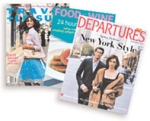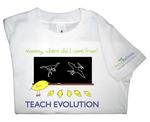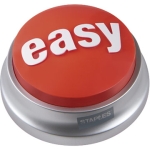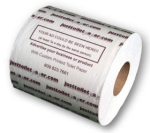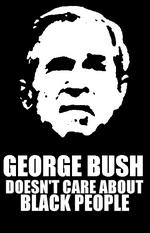has partnered with to market custom flip books to professional sports teams and organizations for use as marketing premiums. These custom books, called Fanimations, will be customized specifically for the needs of the teams and their corporate partners.
Originally invented in 1882 and recognized as one of the earliest forms of interactive multimedia, flip books create the optical illusion of motion when images - stacked in sequential stages of movement - are flipped.
Fifty-eight percent of consumers are "very aware" or "somewhat aware" of custom publications and once they were presented with specific examples of custom publications, 93% of respondents were familiar with at least one type of custom publication, according to a new national poll conducted for the Custom Publishing Council by Roper Public Affairs this summer. The survey, "Americans' Relationship with Custom Publications and the Companies that Provide Them," found that 85% say that if they are going to get information from a company, they'd prefer to get it in an interesting collection of articles, rather than an ad.
Though only 58% immediately knew the term "custom publishing," once surveyers explained what custom publications were – e.g., a magazine from the manufacturer of an automobile that you drive – 80% said they often find interesting information in these magazines and 75% said that they felt better informed after reading these publications.
AdJab points us to an activist site, called Baby Politico, where psycho, politico-parents can buy their babies clothing emblazoned with cause-related messages. Not that the messages are bad but the idea of parents using their helplessly innocent babies to promote their own causes is truly less than respectful.
While it's been done before by USA Networks and others, this might be the most relevant dollar bill sticker promotion to date. To spread the rod about its new show Commander in Chief, ABC has affixed thousands of dollar bills with the image of Geena Davis, the star of the show who plays the President in the series. A less relevant dollar bill promotion highlights NBC's unscripted series Three Wishes.
Apparently, so many people like the Easy Button featured in the latest batch of Staples commercial, the office supply retailer has decides to sell the button which, when pushed, utters, "That was easy." It's rare when a commercial creates a product other than the one it intended to sell. Not that the Easy Button will actually help you get more work done but at least it will for a bit of office diversion.
With it's Coca-Cola Cruiser, a hyped up beverage cart to deliver Coke products to attendees of indoor and outdoor events, Coke is working to bring the "brand experience" right to the person instead of requiring them to slog there way to a concession stand. The unit is battery powered and includes a place for the delivery guy to stand. The cart was designed by Studio Red.
In the seemingly endless quest to plaster every last surface of the world with advertising, Denver ad man, Greg Gorman, creator of the Budweiser frogs and their signature "Bud-Wei-Ser," has applied for a patent and trademarked the words, "Parking Stripe," which is the name of his company. The company will work with 3M, a client of Gorman's at Golden advertising, and parking lot owners to adhere special strips containing ad messages right over existing parking lot lines. Parking lots could become very colorful places in the not too distant future.
Engaging in a bit of experiential marketing, job-search engine CareerBuilder.com is launching a college event marketing campaign, a mobile marketing tour that kicks off October 1. The tour will be split up into three regions (West Coast, Central, and East Coast), with two vans carrying a total of four ambassadors in each region. Currently, twenty-three campuses are on the agenda with more to follow. Hooking up with each school's career center, CareerBuilder.com will hold informal job-search seminars showing students how to search for jobs on the Internet, how to write an effective resume, and how to use the Web to send a resume. Also at each stop are mini seminars on how students can market themselves to employers; games; chances to win a cruise, plasma screen TVs, and MP3 players; and premium giveaways. San Francisco's Swivel Media organized the program.
As part of our continual bickering about the incessant proliferation of inefficient, un-targeted advertising, over two years ago we predicted toilet paper would be the next medium of choice. Well, yesterday, we were sent a link to Just Toilet Paper, a company that imprints toilet paper with all sorts of cutesy designs but that also sells ad space and, as it turns out, has been doing so since 2001. The company, which claims people go to the bathroom, on average, six times a day, will imprint a company's logo or design on various sizes of toilet paper. While there's certainly merit to this medium, what with it's "captive" audience, we're just not sure many brands want people wiping there ass with precious corporate logos. Of course, it's a great way for consumers to take out their aggressions on brands and shit all over the ones they don't like.
As soon as Kanye West went off-prompter during NBC's A Concert for Hurricane Relief Friday saying, "George Bush doesn't care about black people," enterprising t-shirt company Moe Wampum began marketing shirts with West's comment emblazoned upon them. Bucky Turco informs us the shirts are being promoted through the BlogAds ad network and appear on, among others, Gawker Media's Wonkette.

|
|



